On a parched Tuesday afternoon, a two-centuries-old wooden house was being dismantled piece by piece. The sound of machinery scooping up scraps of woods and bricks echoed inside the walls of Manakan, a fort built in 1783 to protect the new capital from potential invasions.
The land inside Mahakan Fort was home to nearly 300 people. Their shared walls and pride in their history made them feel more like a family rather than a group of neighbors. The small community dates back to the reign of King Rama III, when servants of Thai aristocrats built their houses there in order to stay close to their masters.
But today is the last for the Mahakan Fort community, as the government has evicted the residents in order to turn the land within Bangkok’s historic district into a public park intended for tourists.
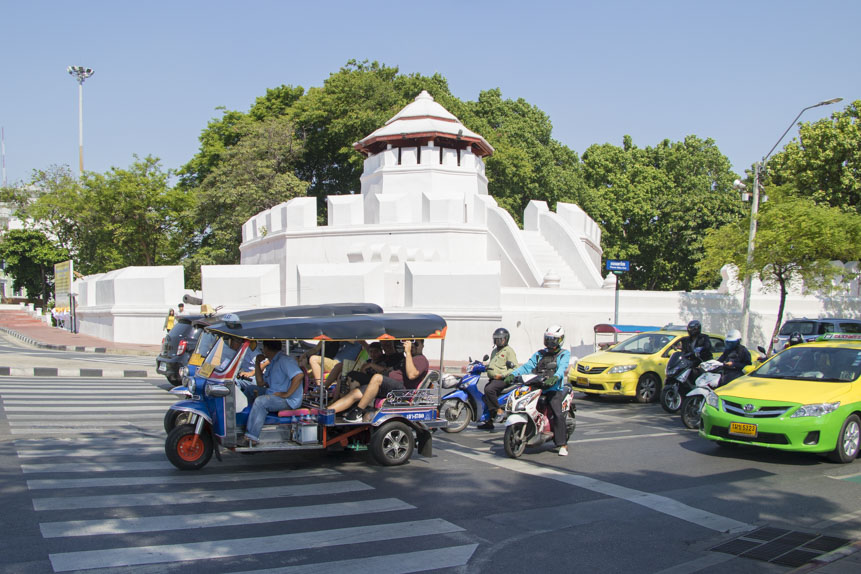
READ: Mahakan residents fight for their centuries-old home
The notice came after 26 years of standoffs and legal battles. It’s officially the end of Mahakan, which tourists may know as Bangkok’s “living heritage museum” due to each home putting up signs, posters, and newspaper articles on their doors, telling their stories.

One day before the the eviction deadline of April 25, most of the houses were already gone. Ten families stayed until the that very last day, waiting for their walls to be torn down.
Pod Uppatateerawat, a 52-year-old lawyer, watched as the specialized workers he had hired dismantled his family’s home, the “Ancient House,” known as the fort’s oldest estate and a treasure of the Mahakan community.

A file photo of the Ancient House, taken when Coconuts visited the Mahakan community in April 2015

But for him, the Ancient House was not just a piece of history. It was his childhood.
“We started at 11pm last night. I sat there. I could just watch,” he said, pointing at a bench by the house.
“Images from the past flashed through my mind. Don’t make me talk about it or I’ll cry,” he said, his eyes glistening.

Although Pod had moved out over a decade ago and left the home to his elder brother, he said he would store its parts and plans to rebuild it, someday.
At the edge of the land, by the canal, stood the home of Pornthep Buramabudeedech, 53, who also grew up inside the fort. Accompanying him was 7-year-old Tone, Mahakan’s unofficial animal mascot — the plump pooch was often seen and photographed by visitors and media.
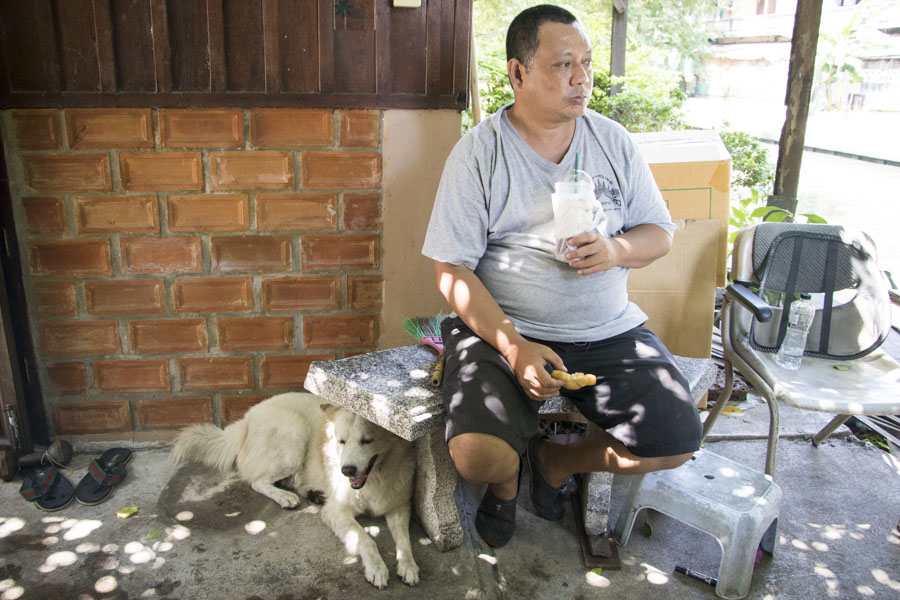
“My house is very easy to remember. It’s the last one when you walk through the gate. Well, no more of that now,” he said.
Pornthep sat down outside of his house, where boxes of his stuff were stacked and prepared for the move. He yelled across the alley to talk to his neighbor, Tik, who moved to live close to him.
“I still can’t fully cope with this,” Pornthep said.
“There’s a strong bond [between the residents]. Last night I was hungry, so my neighbor Tik told me I could share her rice. When I buy side dishes, I share with other families too. This is our way of life.”

‘I can’t leave this family’
Thawatchai Woramahanakul, 60, worked tirelessly as the community’s president for 18 years until the last eviction notice was delivered.
The community leader, who had hoped to save the fort from the government’s plans, was packing up electronics at his home — an ordeal he said he was not ready for.
“I still can’t accept this,” he said.
“They told the Thai people to love their homes, so why are they turning our home into a tourist attraction?”
“The government used their power to rob us of our land. One day, they just told us we were trespassing. They didn’t even give us a chance to give our opinions,” Thawatchai said.

Before the final eviction, the community made one last ditch effort to offer up a part of the land to be made into the park officials wanted while still keeping their homes, co-existing with the attraction as a kind of living museum. It was an idea that kept the residents hopeful throughout the years.
“In the end, the citizens don’t have access to power. The order is given from above and it’s done.”
“I’m not educated, but ask me about the history of Mahakan. I can cite the history all I want, but they just said, ‘This is illegal,” Thawatchai said.
“In the end, the government always wins.”

Thawatchai and his wife will move to an apartment building in Bangsue district, where he will live with seven other families from Mahakan Fort, in an attempt to keep their way of life. Amongst those who will move with Thawatchai are Pornthep’s and Tik’s families.
Pornthep has arranged for 30 Mahakan residents to live together rent-free for one year. After that, they plan to buy a plot of land outside of Bangkok and build their houses there together, creating an “Improved Mahakan Fort Community.”
“Two of my kids asked me and my wife to live with them, but I can’t leave this family. We’ve been through a lot in the past 20 years,” Thawatchai said.
As I was leaving, two college students, who obviously had no idea about the fort’s imminent destruction, showed up at Thawatchai’s door and asked if he could tell them about the heritage living museum.
As the backhoes’ engines hummed meters from his house, Thawatchai responded, “It’s all gone, kids. Don’t you hear the sound of them tearing it down?”

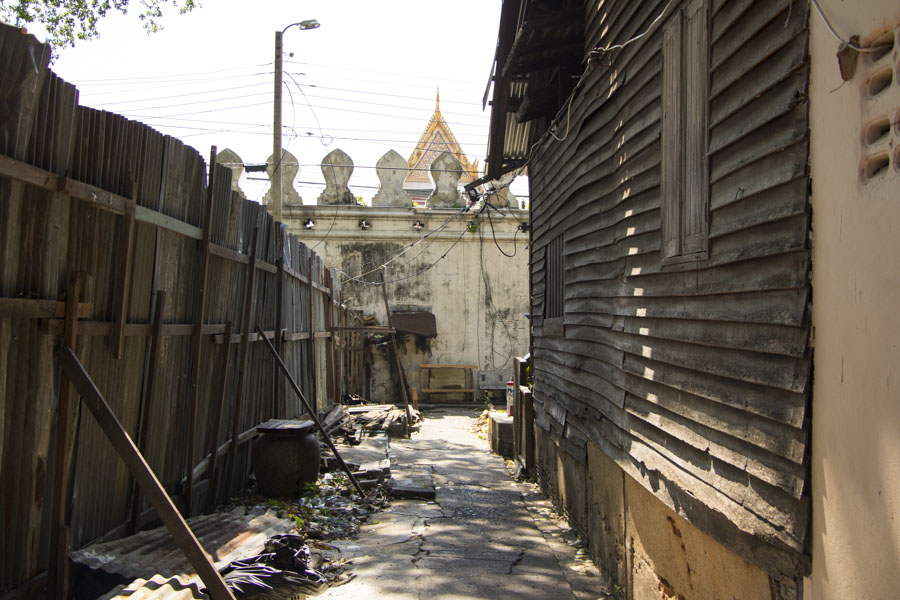
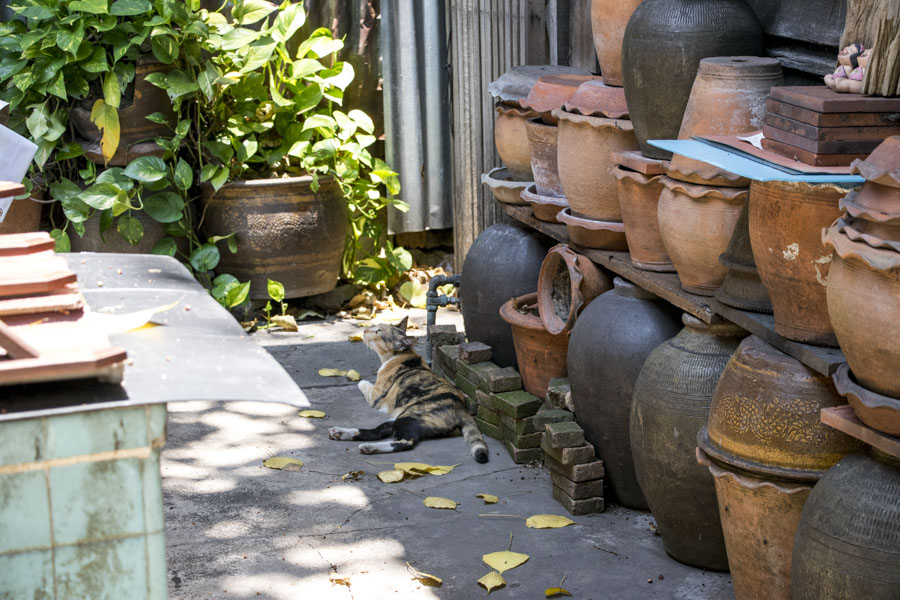


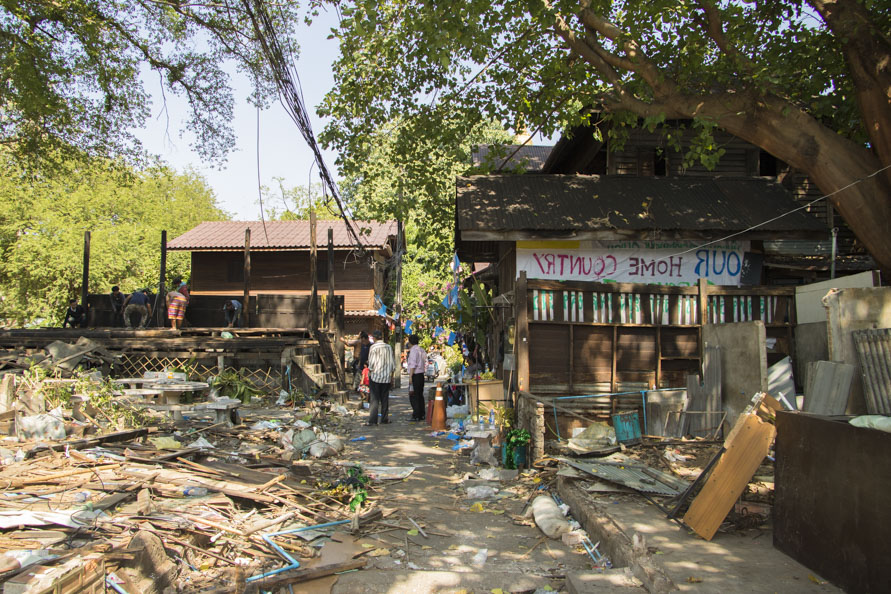

Related:
People of the Fort: Mahakan residents fight for their centuries-old home
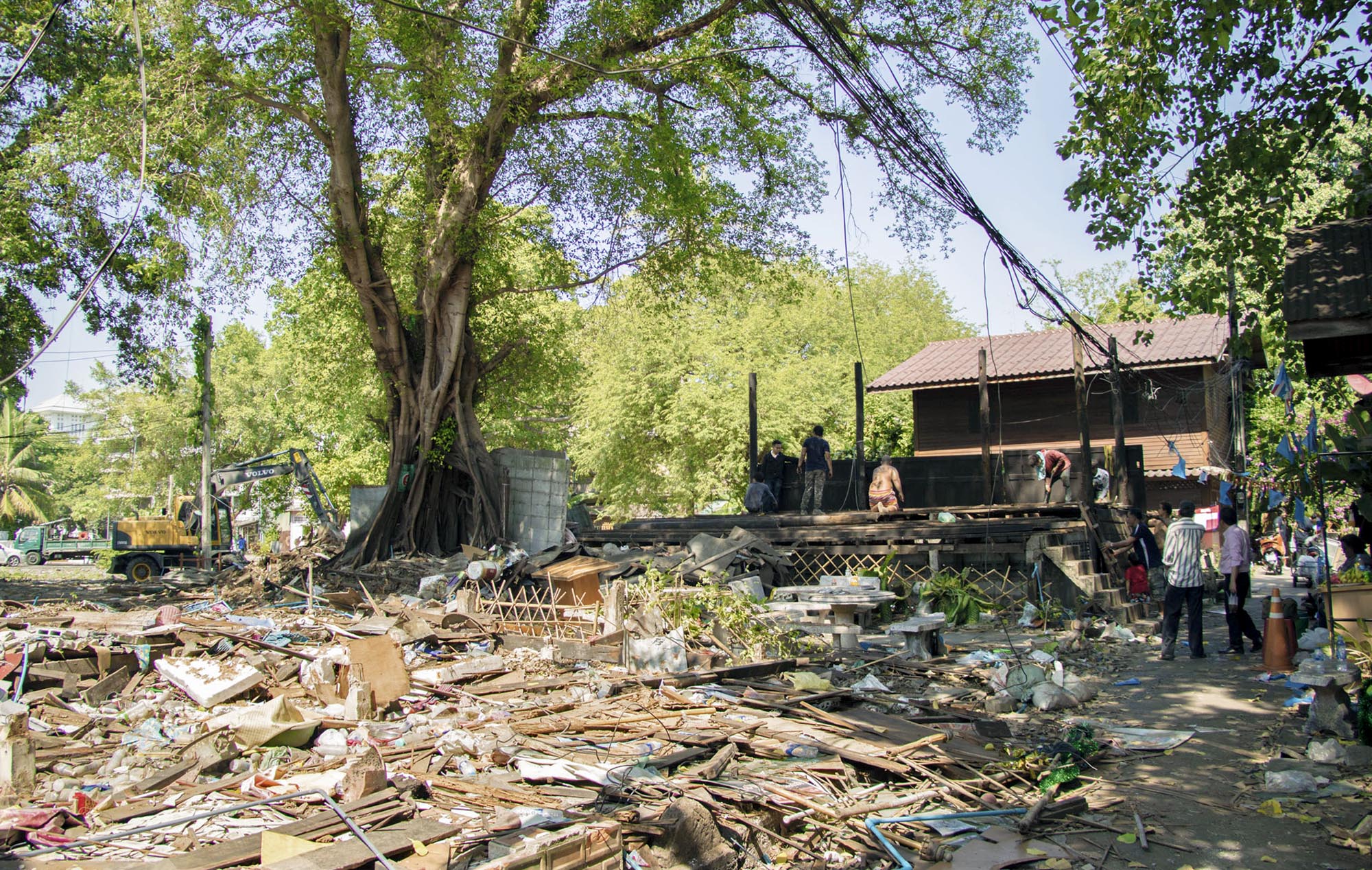


Reader Interactions